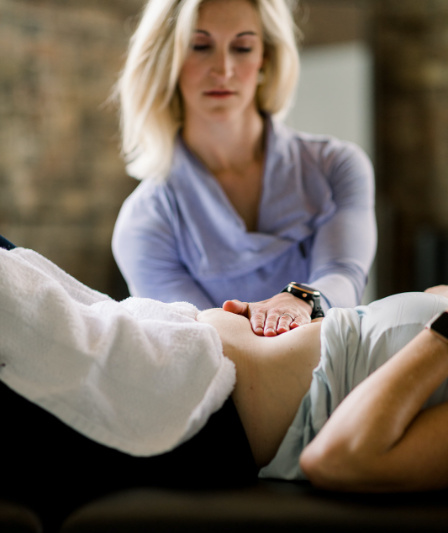The bladder is a muscle that sits inside the “bowl” of the pelvis and provides a storage unit for urine to accumulate. Once the bladder is full, its job is to contract and empty. But we don’t want the bladder to empty before we are ready to…AKA, before we are safely seated on the toilet.
Common Bladder Issues:
Incontinence “Leaking”
- Stress Urinary Incontinence – Loss of bladder control with physical exertion (jumping, running, standing up, coughing, sneezing, etc)
- Urge Urinary Incontinence – Loss of bladder control involving a strong, sudden urge to have to urinate “right here, right now.” Results in an accident before making it to the restroom.
- Mixed Urinary Incontinence – A combination of both stress and urge urinary incontinence. This type is most common.
Bladder leakage of any kind at any point in life is NOT normal….I repeat not normal! It can and should be properly addressed.
Frequency
- Having to pee more often than you should
- Average frequency of urination is every 2-3 hours for a total of 7-9x/day
- Shouldn’t urinate any more than 1x/night (ideally not at all)
Retention
- Difficulty fully emptying the bladder naturally
- Leaving you with a sensation of having to go “more” after you have finished urinating
Painful Bladder Syndrome
- Previously & commonly called Interstitial Cystitis (IC)
- A chronic condition involving frequent pain or pressure in the bladder region
- Can be triggered by stress, food sensitivities, bladder irritants
- Can contribute to symptoms of urine retention, frequency, discomfort, pain and leakage
Urinary Tract Infection (UTI)
- Caused by exposure to bacteria within the urinary tract
- Symptoms of burning, frequency, leakage and sensation of incomplete emptying
- Frequent and re-occurring UTIs can indicate several different things:
- High levels of yeast and inflammation in the body
- Consulting with a Nutrition Professional to help decrease levels would be helpful! Fermented foods and a solid probiotic are a good place to start.
- Atypical anatomy and positioning of bladder and urethra within the pelvis can predispose the body greater risk of bacterial exposure
- Poor wiping habits – should always wipe yourself front to back to avoid exposing fecal matter to urethra
- Tight pelvic floor musculature
- High levels of yeast and inflammation in the body
- If gone untreated, can lead to kidney infections. This can become a very serious condition and should be addressed by a medical professional right away.
Tight pelvic floor muscles
- Have you ever experienced the sensation of a UTI, only to find out you don’t have one? One possible reason could be a tight pelvic floor. See our previous blog POST on how to know if your pelvic floor is too tight.
As Women’s Health Physical Therapists, we help treat several of these conditions. For more questions about how we may be able to help you, contact us!
Reply...
